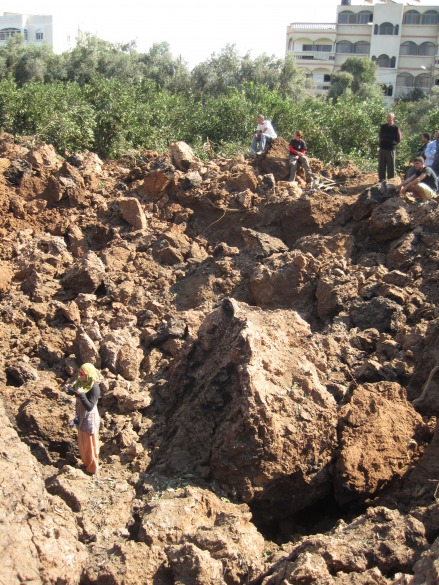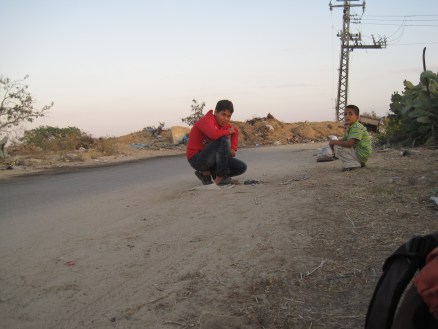Tag: Gaza
-
Israel drops missile on North Gaza neighborhood, no one cares
Radhika Sainath | International Solidarity Movement, Gaza The Israeli Air Force fired a missile into a Beit Hanoun residential neighborhood in north Gaza early Sunday morning. The missile landed in a grove surrounded by homes, creating a crater the size of a tennis court and destroying over forty orange and olive trees. Chunks of shrapnel and…
-
Literal buzzkills: What it feels like underneath an Israeli drone
Sami Kishawi 30 October 2011 | Sixteen Minutes to Palestine Unmanned Israeli drones have been circling over the Gaza Strip for more than a day now. Few people outside of Gaza realize just how psychologically torturing this can be. Not only are the drones loud and incessant, but they also instill fear: the drones are able…
-
The Israeli Army shot at me and 3 Palestinian kids in Gaza today
Radhika S. 28 October 2011 | Notes from Behind the Blockade After a lovely day of drinking excessive amounts of tea with a few families in South Gaza (Faraheen and Khuza’a, to be exact), an Italian colleague, Silvia, who used to live in Khuza’a, suggested walking down the road towards the local school. It was…



